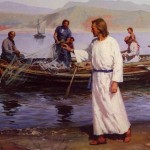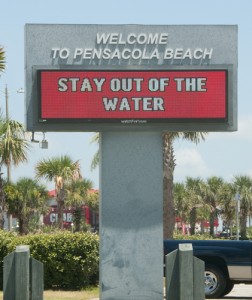Contributed by Jay McDivitt, Mequon, WI
Warm-up Question
What is one thing you have learned about “faith” from a grandparent and/or a parent?
Christian Kids Not Really Christian?
Kenda Creasy Dean, a professor at Princeton and author of Almost Christian, argues that more and more young people in Christian churches are embracing a “watered-down,” and not really “Christian” faith – something she calls “moralistic therapeutic deism” (MTD). MTD doesn’t reject basic Christian beliefs, but it doesn’t really encourage them either. Instead, MTD affirms that “God” created the world and is available to help you feel better when you’re down, but otherwise stays out of the way. God wants us to be nice and happy. The God of MTD says good people who go to heaven. While these may be common assumptions about faith, Dean argues, these are not the historic claims of the Christian faith.
Why are kids embracing this watered-down version of the faith? Primarily because no one is taking their faith development very seriously. While parents will bend over backwards to drag kids to tutors, coaches, practices, and games to make sure that they learn or even excel in algebra, hockey, dance, soccer, or piano, it seems the name of the game for religion is to “expose” kids to faith – and hope they soak something up. Far from the radical commitments of the first disciples, many Christian churches assume that kids are doing well if they make a few good friends at youth group, have fun at camp, learn how to be nice, and avoid premarital sex or illegal drugs.
bend over backwards to drag kids to tutors, coaches, practices, and games to make sure that they learn or even excel in algebra, hockey, dance, soccer, or piano, it seems the name of the game for religion is to “expose” kids to faith – and hope they soak something up. Far from the radical commitments of the first disciples, many Christian churches assume that kids are doing well if they make a few good friends at youth group, have fun at camp, learn how to be nice, and avoid premarital sex or illegal drugs.
The problem lies mostly with parents, Dean argues: Too many parents don’t understand themselves why the Christian faith makes any real difference in their lives or in the world. They get “nice” and “good” – and, perhaps, “pure.” But they either didn’t grow up in the church or they were taught the same watered-down version of the faith.
What to do about it? The jury is still out. Many see a new passion growing among young people who want a faith that matters in a world that seems to be off balance. Others see an increasing decline in Christianity in North America that will bring faith practice here to the same low levels seen in Europe for decades. One thing is for sure: Dean has started a conversation which will continue for some time as churches, parents, and young people wrestle with what it means to be Christian in the 21st century.
Discussion Questions
- What do you think of Dean’s suggestion that Christianity has become mostly a religion of “nice” and “happy” people? Does this sound like the Christian faith you see at church or in your home? Why or why not?
- Other than being “nice” and “happy” – and praying to God when you need help – what does it mean to you to be a Christian? What’s the real Christian faith, if the version Dean talks about is fake?
- When you think about the future, how do you want the next generation of kids (your kids or your friends’ kids) to learn about being Christians? What would you do differently from what you’re experiencing at home and at church today? What would you do the same?
Scripture Texts (NRSV) for Sunday, October 3, 2010 (Nineteenth Sunday after Pentecost)
(Text links are to Oremus Bible Browser. Oremus Bible Browser is not affiliated with or supported by the Evangelical Lutheran Church in America. You can find the calendar of readings for Year C at Lectionary Readings.)
For lectionary humor and insight, check the weekly comic Agnus Day.
Gospel Reflection
The disciples ask Jesus to “increase our faith!” How many of us have asked the same thing? When we read about tragedies around the world—or experience them ourselves in cancer, car accidents, or parents losing jobs—it’s hard for a lot of us to believe that God is real and doing good in the world. Faith gets rocked all the time, especially in the confusing and changing and crazy years of the teens and twenties.
Jesus’ response to this very normal request is surprising and a little bizarre: “If you had just a teeny-tiny bit of faith, you could move mountains.” Assuming none of us has ever told a mountain to move and had it obey, this seems like a rather strange exaggeration. Not all that helpful, at least on the surface.
But maybe that’s the point. Maybe what Jesus is saying is that the amount of faith isn’t what matters. We sometimes say “That woman is really faithful; she does x, y, and z for the church.” or, “I wish I could have faith like that guy; he’s always got the right answers.” That makes faith all about us—about how often we go to church, when and how we pray, what we do or don’t do on Friday night or Sunday morning, or how many Christian t-shirts or pieces of jewelry we wear. But if faith is all about us, then not only are we off track, we’re doomed.
That’s what is dangerous about the “almost Christian” faith that Dean describes. It’s all about us. Faith becomes how we feel, about how nice we are – and God only enters the picture when we have a problem that we can’t fix. Then we pray “help me!” and hope God will show up and do something.
But that’s not what faith is all about. Faith is the hope that God has planted in us by the life, death, and resurrection of Jesus Christ. Faith is the trust that God didn’t just create the world—and occasionally shows up to fix things when we ask for help—but rather, God is turning the whole world upside down and inside out. God is the one moving mountains, destroying death, forgiving sin, healing divisions, and changing lives. Faith is the gift God gives us to see that “this is most certainly true” and the encouragement to tell the world about what we have seen.
Believing that God is turning the world upside down means that we will see, live, and talk differently. It means we will question more about “the way things are” and believe more about what God is doing. And it means we will have to practice seeing, speaking, and living the faith. Christian faith is a sheer gift, but it does not come naturally; it comes with practice. And practice takes patience and time.
That’s why it is so important for us to listen to our ancestors. Part of the problem of “MTD” is that it is all about “here and now” – it’s about my issues and my life. But Christianity is about the Beginning and the End; it’s about how Jesus is the first and last Word in creation. And that message has been given to us by those who have gone before us. The reading from 2 Timothy is a great example: “I am reminded of your sincere faith, a faith that lived first in your grandmother Lois and your mother Eunice and now, I am sure, lives in you…Hold to the standard of sound teaching that you have heard from me, in the faith and love that are in Christ Jesus. Guard the good treasure entrusted to you, with the help of the Holy Spirit living in us.”
By the gift of baptism, we have living in us the same faith that was given to our parents, our grandparents, and all those who have gone before us. It is solid stuff which makes bold claims about the past, present, and future of creation that go way beyond being “nice” or “happy.” And it is ours to live, to grow in, and to pass on to those who come after us. Since we believe that we “rely on the power of God, who saved us and called us with a holy calling, not according to our works but according to God’s own purpose and grace,” we know that whatever we do with this gift, God will keep on giving it to us and to our grandchildren, now and forever. And thanks be to God for that.
Discussion Questions
- What is different about what your grandparents believed and what you believe? If your answer is “not a lot,” why? If it’s “a lot,” what do you think created the difference?
- When have you ever wished for “more faith”? What happened?
- What difference does Jesus actually make in your life? In your parents’ lives? In the life of your church?
Activity Suggestions
- Arrange for a few older members of the church to come and talk about thier faith life. What was confirmation like for them? Did they ever leave the church? Why or why not? What do they think is the most important thing for young people to learn about Jesus and/or the church? [Perhaps this is a good time to pair each youth with an older adult for a mentoring/prayer partner relationship, if you don’t have one already.]
- Make a “faith family tree.” Have them draw their family trees – including non-“family” members (such as godparents, etc.). Identify what each person did (or didn’t) teach them about Jesus and the Christian life.
- Write a letter to your kids/grandkids/godkids/nieces/nephews. Whatever you imagine for your future in terms of relating to the next generation, pick a kid that you will someday be responsible for. Write them a letter about what you want them to know, learn, and experience as a child of God.
Closing Prayer
God of our ancestors: you have planted in each of us the seed of faith. Help us to grow in a deep and meaningful relationship with you. Teach us the important stuff, and strengthen us to pass it on to those who come after us. Thank you for all the faithful people who have gone before us and for giving us faith, especially when it’s hard to believe. In Jesus’ name we pray. Amen.




